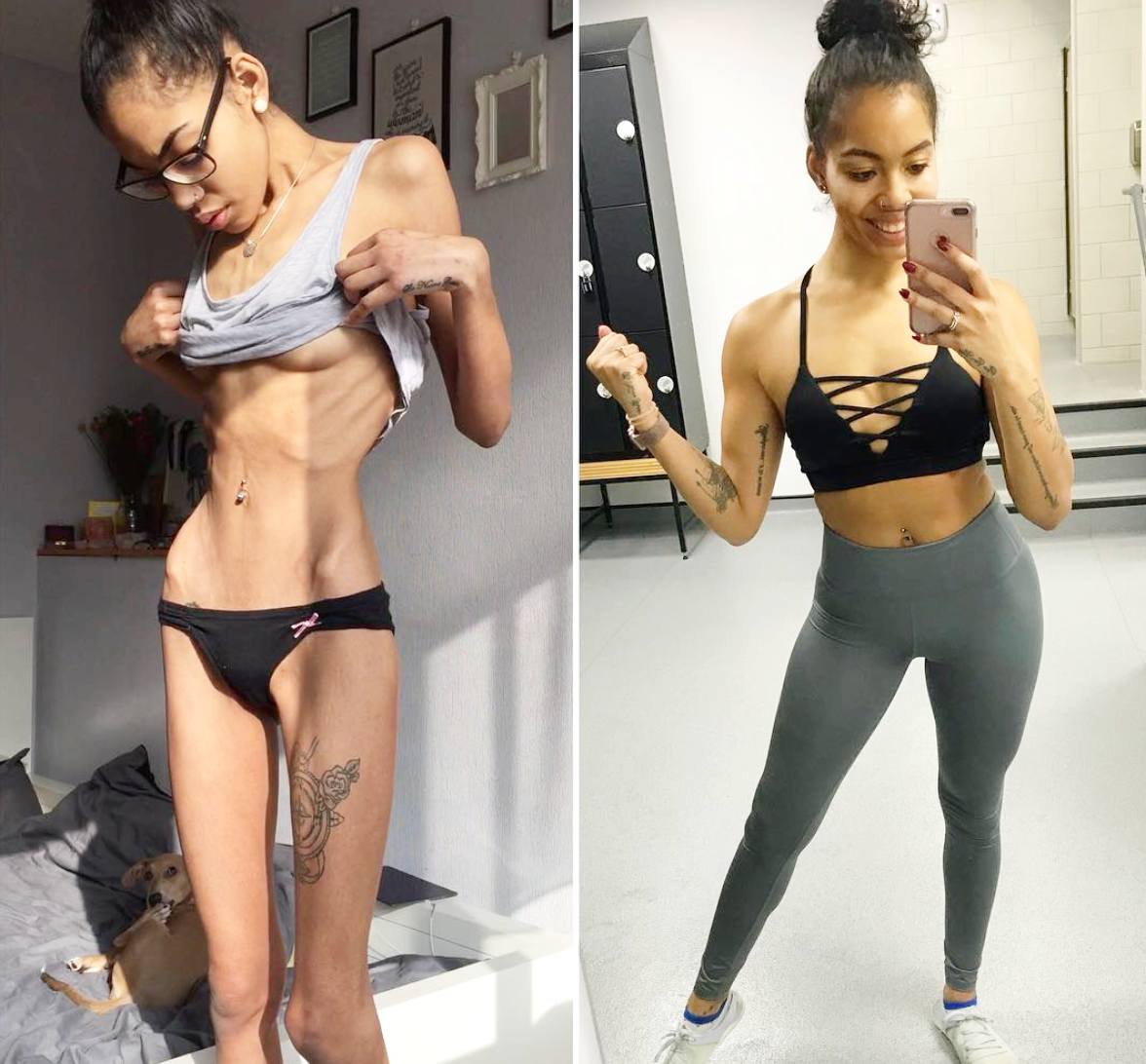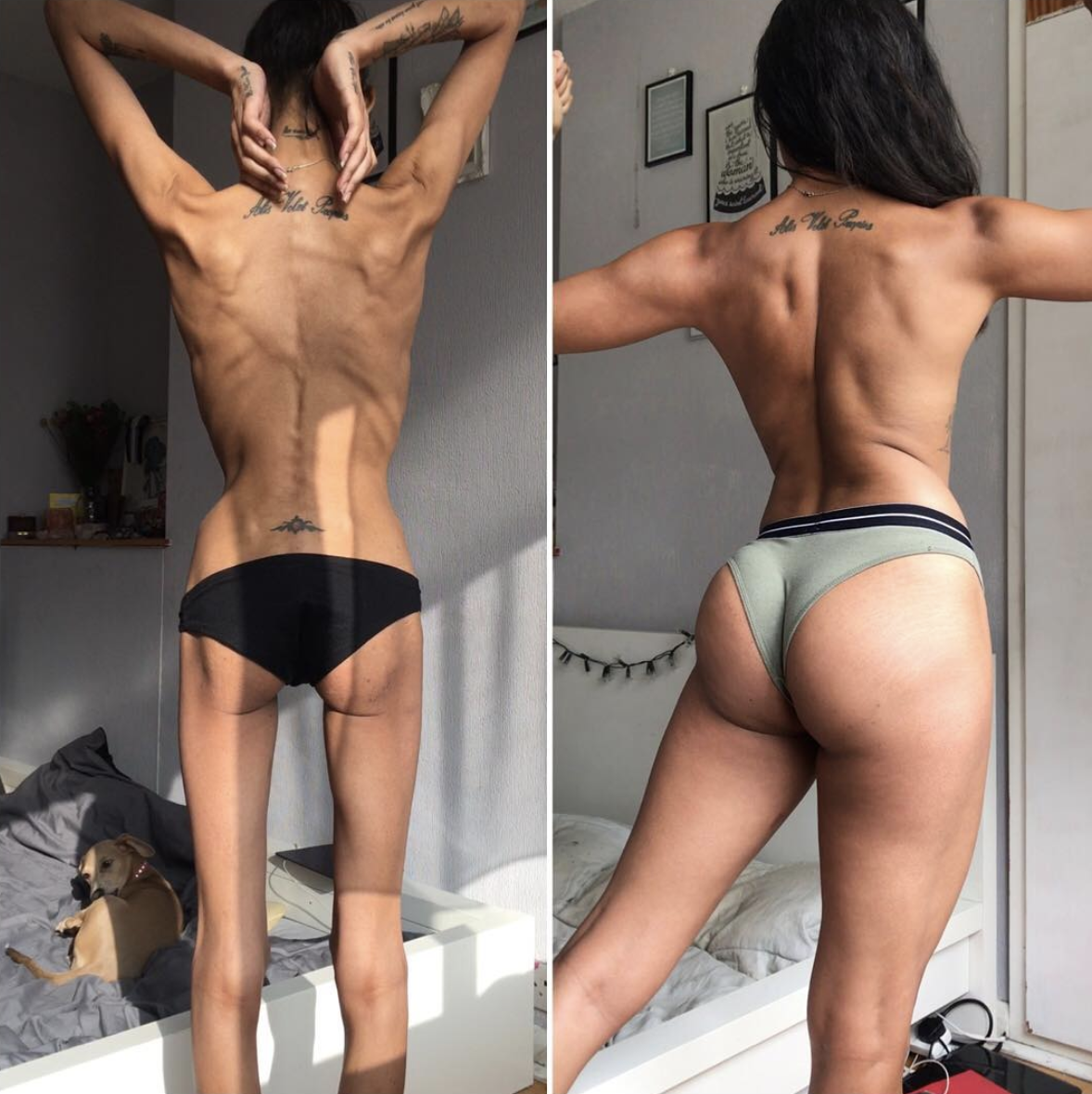From Anorexia to Fitness Inspiration - How Holly Griffiths Transformed her life
This is one of the most powerful interviews I've completed to date, and I am thrilled to share it with you. I came across Holly's story on Instagram and immediately reached out to her. Her story inspired me in ways I didn't know possible. Her perseverance and resilience through her journey is unlike anything I've come across.
Holly was able to conquer her battle with anorexia and now serves as inspiration to many preaching the word of health, balance, and recovery. Through interviewing her, I had an 'aha' moment. I typically interact with those overweight, but a detrimental relationship with food can wear so many ugly (and equally life threatening) masks. And in the end, we all struggle. Those on a health journey, regardless of the journey, all have similar triggers and require a blend of support, determination, and perseverance to get through.
I'm honored to share this side of the struggle with you all. If you enjoy this piece, I appreciate your comments, shares, and likes. Let's help to spread the positive word of healthy living.
Enjoy!
About Holly
Full name: Holly Griffiths
Instagram: @hllylzbth
Job occupation: Yoga teacher
Age: 26
Home Town: London UK
Weight before: 69lbs
Weight now: Unsure - About 128lbs
How long did it take you to gain the weight: 21 months so far
The Interview
Can you tell readers a bit about yourself and your background (family life etc)?
I've always been anxious. I remember being an anxious child and having these really irrational worries especially surrounding my relationships. But apart from that I was happy. I’ve always been an overachiever and I used to really pride myself on that. It’s weird because I was also sexually abused as a child but because I was so young and it went on for so long I didn’t know any difference. Because of that, I can still remember my childhood in a mostly happy and positive light. My abuse was like a dark cloud but one I thought was perfectly normal so until my teens it wasn’t something that bothered me or affected how I saw myself. But long before I realised it was wrong I had already developed mental health problems. It’s complicated. But for the most part I was happy ... I think.
I usually feature extreme weight loss, but your story was so captivating to me and I think will impact many. Can you share with readers a brief understanding of your health journey to date - touching upon your relationship with food?
I still don’t know how or why I developed anorexia. I’ve always understood it as a compulsion but as a youth, I can’t remember my focus ever being on my body or my weight. I was tall and thin as a child so there was no ‘reason’ for me to want to lose weight. I developed the disorder at 8 years old and went into treatment when I was 13. At 15, I relapsed. Since then, I have struggled to maintain a sense of what is normal in terms of body image or a healthy relationship with food, that is until this stint of recovery.
As a result of my anorexia I have a heart condition, arthritis and osteoporosis all of which I have to manage very mindfully - but it’s a lot easier now that my body is healthy.
What made you decide to turn your life around? Can you discuss in detail your recovery from anorexia?
I was under the community mental health team but not recovering through therapy. Sadly, the NHS is in shambles so I was just checking in every six weeks while I was on the therapy waiting list. While waiting, I was still losing weight, no huge amounts by that point but between appointments I lost just under a kilo and was deemed too at risk for community care and was then discharged. That was a real wake up call because I wasn’t referred onwards to another service so I realised that if I didn’t do it for myself somehow I was going to die. And I really realised that I didn’t want to die.
I really realised
that I didn’t want to die.
So I started out by cutting exercise and starting to introduce some safe food that I could eat and keep down. It sounds better than it was - I started by eating a few hundred calories a day which was a leap but not a huge one. But I increased slowly and steadily and mostly managed disordered behaviours along the way. About six months in, I found myself a therapist because I didn’t want to plateau in my recovery. I was then cleared to exercise in January this year. I worked out at home for eight months, learning how to incorporate exercise into my life but avoiding obsession or a need to use exercise to justify food. And then finally joined a gym in October 2017.
Specifically, what changes have you made to your diet/exercise that form the lifestyle you live today? What was it like before, and what's it like now?
Before, I didn’t eat and if I did, I purged what I ate. I can’t actually remember anything that I would eat and digest. I also cycled a lot. I initially bought my exercise bike because cycling helps to lubricate my hips and knees (two places where my arthritis is particularly bad) and therefore lessens the pain. But then, the cycling got out of control. In addition, I was obsessive about walking at least 25,000 steps a day.
Nowadays, I go to the gym three days a week, eat three or four meals a day and don’t have an emotional obligation to do either. If I miss workouts it’s fine. If I miss a meal because I’m busy it’s not the end of the world.
Can you share some setbacks/pitfalls you might have faced on this journey and how you were able to overcome?
I fell into a pattern of binging and purging just before I found my therapist and periods of deep and quite dark depression. Finding my therapist really helped as did a small stint on antidepressants.
I'm sure many people in your network have noticed your transformation. How open and honest are you about your journey and what are some of the ways in which you address questions when asked?
People in my ‘real life’ don’t really mention it. I get the odd 'well done' but that’s it. Social media is where I really talk about my recovery. I try to answer questions as openly as possible. A lot of the time, I don’t talk about specific numbers or foods because those things can be triggering. I also try to be really clear that everyone is different. For instance, I was cleared to exercise quite a while before I reached weight restoration. That was a choice made by my doctor based on my body type and my physical health and medical/physical needs. I also recovered without a treatment team or a meal plan. These things were part of my journey but that doesn’t mean they’re right for everyone. In fact, this path could be detrimental for someone else. I feel like I have a responsibility to be really clear about that.
“Nowadays, I go to the gym three days a week, eat three or four meals a day and don’t have an emotional obligation to do either. If I miss workouts it’s fine. If I miss a meal because I’m busy, it’s not the end of the world.”
What practical/pragmatic advice would you give someone who is suffering from an eating disorder and doesn’t know where to start?
Talk!
Talk to your doctor, your family, your friends.
Find a support system and then take the first step.
It’s going to be shit, there’s no way to make recovery easy but the end is worth it. The light you experience and hope you find is like a breathe of fresh air.



